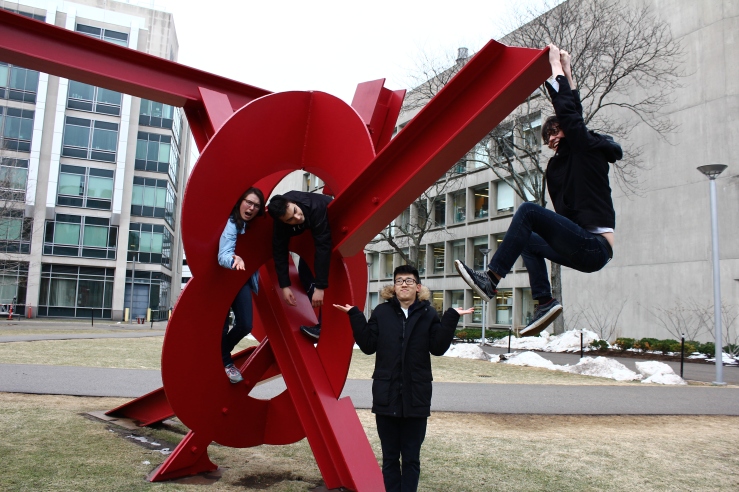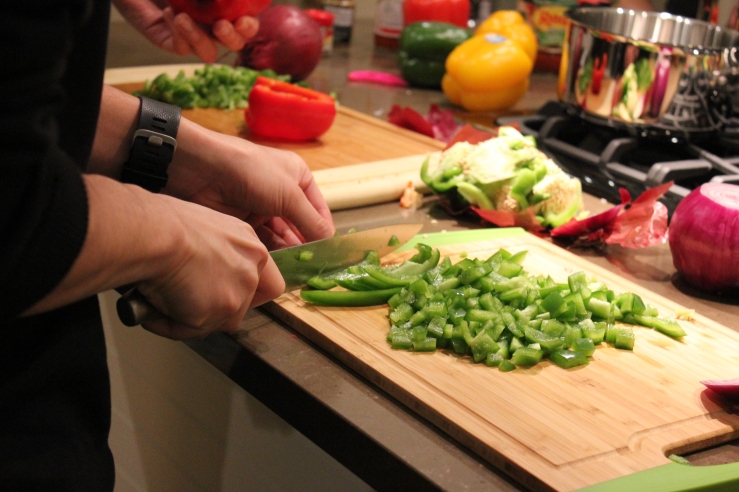For the last half of the semester, I really enjoyed when the grammar topics picked up and sped forward, forcing me to think carefully and deliberately before speaking. Unlike other grammar forms I had learned before, this time, the new たら、ておく、and てある forms didn’t naturally blurt out of my mouth, and I had to think carefully and slowly, which changed the way I approached Japanese.
My first goal was slowing down and focusing on fluidity and rhythm over speed. Now, especially with the new content, I find myself still fixated on the correctness of what I’m saying, which has definitely helped me speak more slowly and deliberately. I feel like I have achieved this goal, and have noticed that I’m ruminating much more on what I say, before and after, always with correctness and smaller details in mind.
I still talk to both my parents in Japanese, a goal I’ve somewhat kept. I wish I had more time to dedicate to these calls, and that is something I’ll be working on not just now, but for the rest of my life, as long as I’m speaking with my parents. I haven’t been so proactive in listening to Japanese music, and am looking forward to doing this in Ishikawa.
My second goal was perfecting the “he” shape. I’m still not there yet, I felt lost and disoriented, and didn’t know exactly what to do for a long time, especially since I had no reference (besides OJAD’s Suzuki-san’s robotic voice). Listening to Shibata sensei’s audio feedback in SE, however, was very helpful, and I think that I have definitely ended the semester with a better idea of what my Japanese should sound like (even if the sounds haven’t yet fully forme din my mouth). I’m more comfortable changing my register when speaking Japanese, I’ve just accepted that my voice will change, and I saw this in the freeform conversation I recorded with Brown-san and in the speech recordings. My double vowels are also more deliberate now, although I still have to keep working on that.
I’m looking forward to being in Japan this summer, for this will help me work on my listening, something I was lacking this semester. I’ve noticed that listening has been extremely helpful, as I tend to mirror the way my grandmother and teachers speak quite often.
My last goal was to be more expressive. The speech process has definitely shown me that I have made progress towards it. I think this last half of the semester, I’ve finally let myself have some fun in Japanese, which has made the assignments and drills more enjoyable, and as a consequence, made me more comfortable expressing emotion in Japanese (this might also be just because we have now acquired a broader range of things to say).
PII will be a great opportunity to continue practicing casual conversation. For future goals, I want to be able to be myself, my own personality, even when speaking only Japanese.
Overall, I’ve ended this semester feeling much more comfortable speaking Japanese. 102 has helped me break down everything I new at an unconscious level, and made me more aware of the mistakes in my spoken Japanese and encouraged me to be more thoughtful and conscientious of my use of the language. Thank you Shibata Sensei, Tokumasu Sensei and Sato Sensei! I’m looking forward for the weeks to come.
 私のダイエットにたくさん豆のしゅるい(type of beans)があります。家族が日本から来たから、りょうりにたくさんだいず(soybeans)を使います。とうふやなっとうやえだまめやとにゅう(soy milk)やみそを食べます。豆はたくさんプロテインがあるから、体にとてもいいです。ブラジルりょうりには、たくさんのレンズ豆(lentils)とくろまめを使います。ご飯とくろまめはとてもゆめなブラジルりょうりです。日本りょうりでも、白米(white rice)と豆の料理があります。時々、お母さんはもちとあんこのあまいものを作ります。
私のダイエットにたくさん豆のしゅるい(type of beans)があります。家族が日本から来たから、りょうりにたくさんだいず(soybeans)を使います。とうふやなっとうやえだまめやとにゅう(soy milk)やみそを食べます。豆はたくさんプロテインがあるから、体にとてもいいです。ブラジルりょうりには、たくさんのレンズ豆(lentils)とくろまめを使います。ご飯とくろまめはとてもゆめなブラジルりょうりです。日本りょうりでも、白米(white rice)と豆の料理があります。時々、お母さんはもちとあんこのあまいものを作ります。



 肉のタピオカ
肉のタピオカ ビルジーニアの青い山
ビルジーニアの青い山
